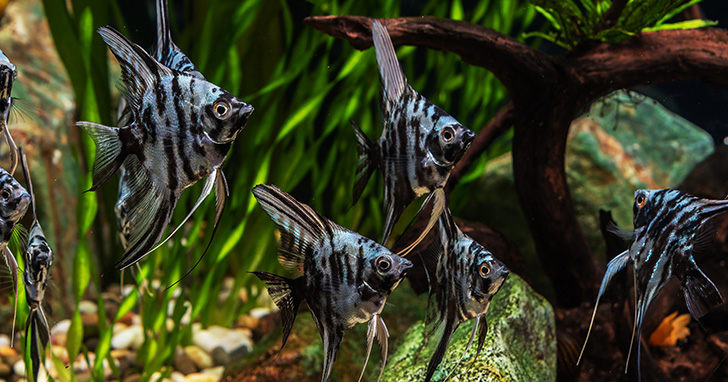
You’re Investing In The FutureLife Expectancies of 5 Popular Freshwater Fish Participating in a hobby takes a certain level of investment. This is definitely true for those who keep aquariums. It includes not only the monetary investment (of aquatic life, aquariums, aquarium supplies, and equipment), but an investment of time and emotions as well. But freshwater aquarists do it in order to reap the reward of a job well done, which is spending time viewing the spectacular aquascapes that are created. Freshwater fish are living creatures that elicit emotion and add so much aesthetic value to home environments. And we would not have it any other way! Many freshwater hobbyists get attached to their aquatic life and want to provide them as long a life as possible. Understanding the depth of commitment that is needed when obtaining a specific species is the first step. Although this may not be the primary reason for selecting a particular freshwater fish, knowing how long they can live helps hobbyists to develop long term aquarium system goals. How long do freshwater fish live? Recognizing there are many factors that contribute to longevity, there are general guidelines that can help us with our selections. We must recognize that longevity among species within a certain genus can vary, and even among individual fish. How do I help my fish live a long life? When sourcing freshwater fish, it is important to purchase healthy specimens. Count on quality suppliers like LiveAquaria® that have on-staff husbandry professionals who work diligently to provide their customers the healthiest specimens possible. Doing so will help give your aquatic life the best start for a healthy and long life. The biggest contributing factor to the longevity of your freshwater fish is to provide them the best care possible. Follow established guidelines such as the Care Statistics provided by LiveAquaria® to plan and maintain optimal conditions. Learn what size tank is best for your specimen, maintain the required water parameters, create an environment that replicates their natural environment, select compatible tankmates, perform aquarium maintenance, and treat sick and injured fish as soon as possible. In addition, select appropriate food and feed it according to the recommended schedules. LiveAquaria® has a host of articles to help aquarists achieve success. Let us examine estimated longevity of five popular freshwater fish housed in an aquarium environment. Aquatic hobbyists should remember that if purchased as adults, some fish have already spent part of their life with suppliers before they make their way to their new homes. How long can Goldfish live in my aquarium? 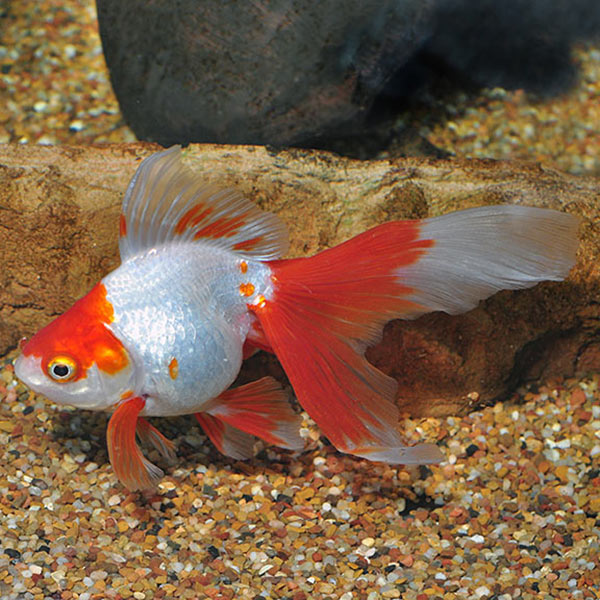
Fancy Goldfish, if kept in ideal conditions, can live up to 15-20 years. Beginner freshwater aquarists are in luck because one of the easiest fish (and many times the first fish that people get), is the Goldfish, which can live a long time. Now with so many different varieties available, Fancy Goldfish are some of the most popular options among freshwater aquarists. Long flowing fins, amazing color patterns, and prominent features differentiate Fancy Goldfish from common Goldfish. They are an extremely popular fish for aquariums, smaller ponds, and water gardens. How long can Bettas live? 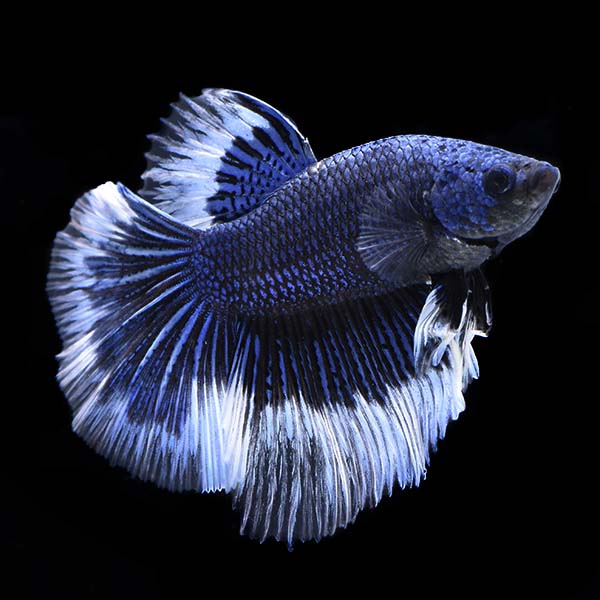
Bettas can live up to 5 years, but 2-4 years is most common. The Betta (Siamese Fighting Fish) is one of the most popular aquarium fish. Over one hundred years ago, aquarists in Asia began breeding Betta fish to emphasize color and finnage. The results of those efforts are readily seen in the beautiful variety of today's Betta strains. Because Bettas are best housed singularly, there is the opportunity to make them the star of the show and enhance the display with many other aquatic life species that can live with them in harmony. Bettas are popular among aquarists from beginners to experts. How long do Freshwater Angelfish live? 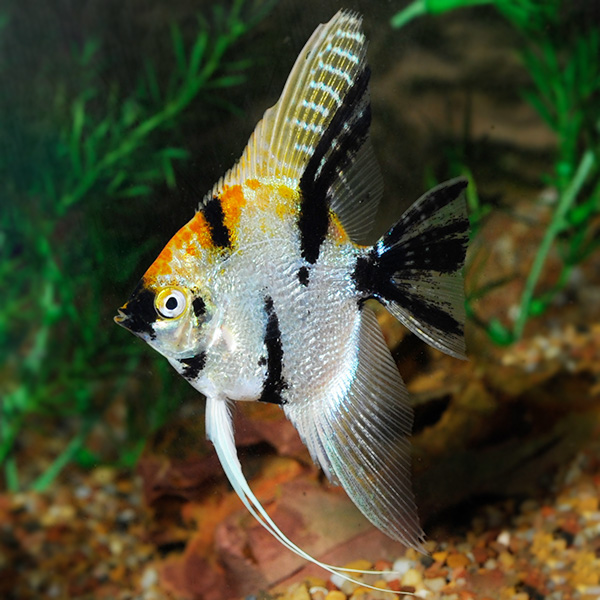
Freshwater Angelfish can live up to 15 years, but 10-12 years is more common. Freshwater aquarists who are envious of the many different species available to marine hobbyists can cross at least one off the list: Angelfish. With the Freshwater varieties currently available, you too can keep one of these prized fish with its distinctive Angelfish shape in a freshwater setup. Freshwater Angelfish belong to the Cichlidae family and come in a variety of color forms and fin lengths, made possible through selective breeding programs. What are life expectancy rates for Cichlids? 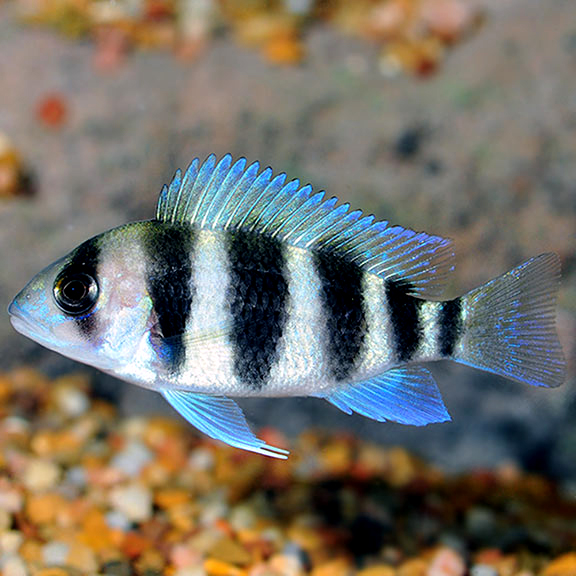
Most Cichlids have an average life expectancy of 4-10 years but some species such as Oscars and Frontosas can live 15-20 years in optimal conditions. The Cichlidae family contains over twelve hundred species of fish and include both New World Cichlids and African Cichlids. Many Cichlids are hardy and easy to care for as well as beautiful, adding brilliant color to their freshwater aquarium. If we were to rank the longevity of Cichlid species, the (New World) Ram Cichlid has an aquarium life expectancy of about four years, whereas the (African Cichlid) Frontosa Cichlid can live for up to eighteen years with proper care. Are Koi one of the oldest fish? 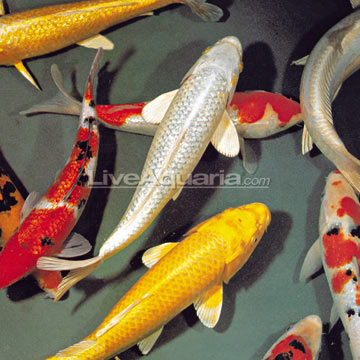
Koi can live up to 50-60 years in commercial facilities, and some have been documented to exceed 100 years. In well-maintained home ponds, a lifespan of 25-40 years is common. Japanese Koi have the distinction of being the first recognized fish strain housed in captivity. Originally kept as a food source, their keepers began appreciating them for their beauty and began breeding them for color and form starting in the twentieth century. Through selective breeding, there are now over one thousand color varieties. Koi Fish are living jewels of their environment and are elegant freshwater fish for outdoor ponds. While Koi can live many more years when housed optimally in a commercial facility, they may live up to twenty-five or thirty-five years with diligent care in a home environment. They are social creatures that enjoy the company of other Koi and should not be kept alone. The ideal environment for Koi is a pond of at least one thousand gallons with plenty of cover and adequate filtration. Koi are very resilient fish that can winter in a frozen pond, provided a hole is maintained in the ice with an airstone or floating heater for gas exchange. Protecting them from predators, supplying the correct lighting, environment, tankmates, and food is also necessary. In Closing We hope the information presented here will inspire and encourage freshwater hobbyists to learn as much as they can about their new additions and strive to provide the conditions that will provide each one a long and healthy life. Related Articles
|
|
|


